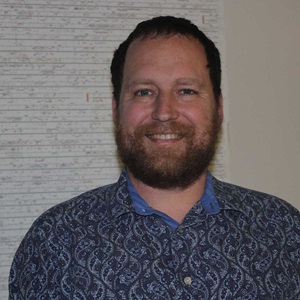Luke J. Harmon
Luke J. Harmon
Professor
Life Sciences South 347
208-885-0346
Dept. of Biological Sciences
University of Idaho
875 Perimeter MS 3051
Moscow, Idaho 83844-3051
Research: Ecology & Evolutionary Biology
- Ph.D. Evolution, Ecology, and Population Biology, Washington University, 2005
- B.S. Zoology, with honors, summa cum laude, Minor: Mathematics, Iowa State University, 1998
Our research investigates ecological and evolutionary aspects of adaptive radiations. Current projects span a wide range of taxa and time scales, including adaptive radiation in E. coli biofilms, evolution of island lizards in the Caribbean and Indian Ocean, and macroevolutionary dynamics of vertebrates. You will find more information about all of these projects on the research and publications pages.
My research focuses on developing new comparative methods and applying them to large phylogenetic datasets. Ongoing progress in building the tree of life provides a rare opportunity to learn about the dynamics of diversification through time and across clades. Current projects in my lab are focused on testing hypotheses about trait evolution, diversification, and adaptive radiation using statistical comparative methods. I am also interested in the interface between quantitative genetics and comparative methods.
- Adaptive radiation:
We are investigating repeated and predictable patterns of speciation and trait change across clades of diversifying species. If adaptive radiations are driven by divergent natural selection following entry into new adaptive zones, then diversification during such radiations may be both repeatable and predictable. We test these hypotheses using natural experiments of lizards, mammals, fish, plants, and other organisms. - Comparative methods:
We are developing new comparative approaches to answer ecological and evolutionary questions about the tempo and mode of diversification. The statistical techniques that I have developed in my work are now implemented in a software package, Geiger, written in the R language. - “Reading” the Tree of Life:
We are searching for the signature of diversification and species interactions across broad sections of the tree of life. First, we are working to combine both paleontological data (fossils) and phylogenetic data together to fit models of diversification through time. Second, we have implemented more advanced statistical approaches that can more flexibly fit a wider range of models to data, including models that capture the dynamics of species’ interactions. These new approaches may help us understand the processes that cause new species to form on the Earth.
- 2011: Early-Career Faculty Award, University of Idaho
- 2009: Young Investigators Prize, American Society of Naturalists
- 2006: Just Desserts Award (for services to graduate students), University of British Columbia







